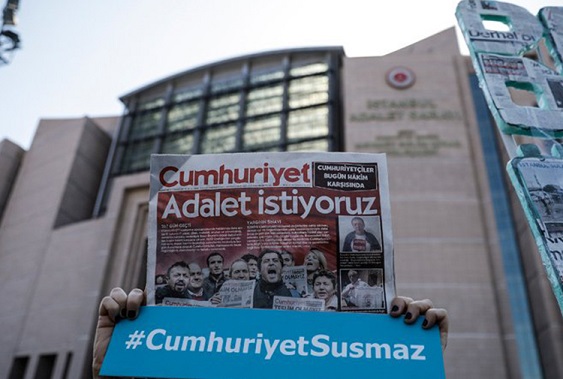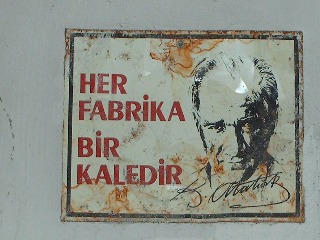Sounds, Silences and Turkey's Crumbling Core
By Gareth Jenkins
September 19, 2017
Since the failed coup of July 2016, Turkey’s spiralling descent ever deeper into authoritarianism has been characterized by arbitrary arrests and widespread abuses of even the draconian powers afforded the regime under the continuing State of Emergency. In addition, the government’s domination of the media has meant that, for the mass of the Turkish public, the reality of what is happening in the country is submerged beneath a cacophony of distortions, delusions, untruths and febrile conspiracy theories.

What the Sledgehammer Sentences Mean
By Halil M. Karaveli (vol. 5, no. 18 of the Turkey Analyst)
The sentences in the Sledgehammer trial demonstrate the subjugation of the military to civilian, democratic, legal authority. But at the same time, it is not in the interest of the government of the Justice and Development Party (AKP) that the officer corps is further demoralized. Prime Minister Recep Tayyip Erdoğan no longer has an interest in wielding a sledgehammer against the military. The outcome of the trial of the generals must be viewed against the backdrop of the new power struggle that rages in Turkey, between the AKP and the movement of Fethullah Gülen.
The General Who Stages the 1980 Coup is Put on Trial, but His Legacy Reigns Supreme
By Halil M. Karaveli (vol. 5, no. 8 of the Turkey Analyst)
The trial of the two surviving members of the junta that seized power on September 12, 1980, in a coup that altered Turkey’s course, is an historic event, but it does not reflect any desire to settle accounts with a regime whose framework, on the contrary, is preserved. What would amount to the ultimate conviction of Kenan Evren would be if the constitution that bears his signature were to be scrapped and replaced with a democratic one. But instead, Prime Minister Recep Tayyip Erdoğan wants to concentrate even more power into his hands than Evren once did.
Turkey at 90: Capitalist Development has Determined the Political Journey of the Republic
By Halil M. Karaveli (vol. 6, no. 20 of the Turkey Analyst)
Capitalism is the key to understand the political journey of the Turkish republic. Capitalist development explains the transition to multiparty democracy, the military coups, and most lately the ascent of Muslim conservatives to power. But the Justice and Development Party (AKP) has ceased to be a vehicle of capitalist development as it has increasingly veered toward a conservatism that does not provide for the needs of advanced capitalism. If the ninety years of republican history is any guide, then Turkish capitalism can be expected to produce another political remedy to its predicament.



